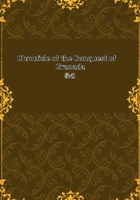
第94章
No sooner did the last squadron of Christian cavalry disappear behind the mountains of Elvira and the note of its trumpets die away upon the ear than the long-suppressed wrath of Muley el Zagal burst forth. He determined no longer to be half a king, reigning over a divided kingdom in a divided capital, but to exterminate by any means, fair or foul, his nephew Boabdil and his faction. He turned furiously upon those whose factious conduct had deterred him from sallying upon the foe: some he punished by confiscations, others by banishment, others by death. Once undisputed monarch of the entire kingdom, he trusted to his military skill to retrieve his fortunes and drive the Christians over the frontier.
Boabdil, however, had again retired to Velez el Blanco, on the confines of Murcia, where he could avail himself, in case of emergency, of any assistance or protection afforded him by the policy of Ferdinand. His defeat had blighted his reviving fortunes, for the people considered him as inevitably doomed to misfortune.
Still, while he lived El Zagal knew he would be a rallying-point for faction, and liable at any moment to be elevated into power by the capricious multitude. He had recourse, therefore, to the most perfidious means to compass his destruction. He sent ambassadors to him representing the necessity of concord for the salvation of the kingdom, and even offering to resign the title of king and to become subject to his sway on receiving some estate on which he could live in tranquil retirement. But while the ambassadors bore these words of peace they were furnished with poisoned herbs, which they were to administer secretly to Boabdil, and if they failed in this attempt they had pledged themselves to despatch him openly while engaged in conversation. They were instigated to this treason by promises of great reward, and by assurances from the alfaquis that Boabdil was an apostate whose death would be acceptable to Heaven.
The young monarch was secretly apprised of the concerted treason, and refused an audience to the ambassadors. He denounced his uncle as the murderer of his father and his kindred and the usurper of his throne, and vowed never to relent in hostility to him until he should place his head on the walls of the Alhambra.
Open war again broke out between the two monarchs, though feebly carried on in consequence of their mutual embarrassments. Ferdinand again extended his assistance to Boabdil, ordering the commanders of his fortresses to aid him in all enterprises against his uncle, and against such places as refused to acknowledge him as king; and Don Juan de Bonavides, who commanded in Lorca, even made inroads in his name into the territories of Almeria, Baza, and Guadix, which owned allegiance to El Zagal.
The unfortunate Boabdil had three great evils to contend with--the inconstancy of his subjects, the hostility of his uncle, and the friendship of Ferdinand. The last was by far the most baneful: his fortunes withered under it. He was looked upon as the enemy of his faith and of his country. The cities shut their gates against him; the people cursed him; even the scanty band of cavaliers who had hitherto followed his ill-starred banner began to desert him, for he had not wherewithal to reward nor even to support them. His spirits sank with his fortune, and he feared that in a little time he should not have a spot of earth whereon to plant his standard nor an adherent to rally under it.
In the midst of his despondency he received a message from his lion-hearted mother, the sultana Ayxa la Horra. It was brought by the steadfast adherent to their fortunes, Aben Comixa. "For shame,'' said she, "to linger timorously about the borders of your kingdom when a usurper is seated in your capital! Why look abroad for perfidious aid when you have loyal hearts beating true to you in Granada? The Albaycin is ready to throw open its gates to receive you. Strike home vigorously--a sudden blow may mend all or make an end. A throne or a grave!--for a king there is no honorable medium."
Boabdil was of an undecided character, but there are circumstances which bring the most wavering to a decision, and when once resolved they are apt to act with a daring impulse unknown to steadier judgments. The message of the sultana roused him from a dream.
Granada, beautiful Granada, with its stately Alhambra, its delicious gardens, its gushing and limpid fountains sparkling among groves of orange, citron, and myrtle, rose before him. "What have I done," exclaimed he, "that I should be an exile from this paradise of my forefathers--a wanderer and fugitive in my own kingdom, while a murderous usurper sits proudly upon my throne? Surely Allah will befriend the righteous cause; one blow, and all may be my own."
He summoned his scanty band of cavaliers. "Who is ready to follow his monarch unto the death?" said he; and every one laid his hand upon his scimetar. "Enough!" said he; "let each man arm himself and prepare his steed in secret for an enterprise of toil and peril; if we succeed, our reward is empire."